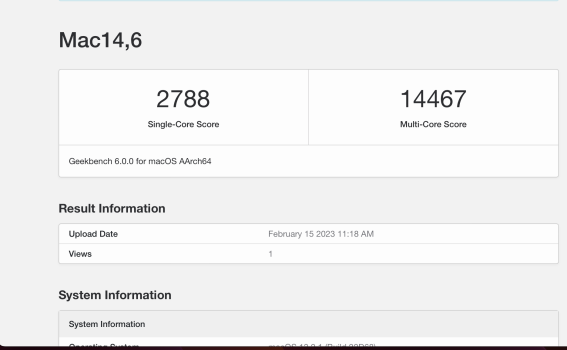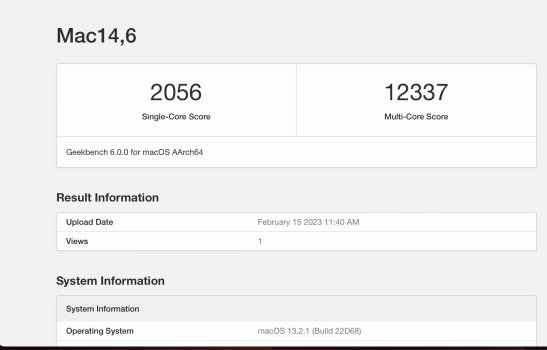Post Apple Silicon Geekbench 6 results or just any results from AMD/Intel/Qualcomm/other CPUs here.
Download: https://www.geekbench.com/download/mac/

Download: https://www.geekbench.com/download/mac/
- ST scores are now normalized to an Intel i7-12700 (2500 score). This means you need 5000 to double the ST performance of an Intel 12700.
- CPU and GPU GB6 results for an iPhone 13 Pro Max
- Generally, GB6 has bigger datasets such as larger photos and longer running tests than GB5 so bursting is less important.
- MT testing has been changed from each core having discrete tasks to cores working together on a single task. This reflects more real world and would capture interactions between cores such as core-to-core latency.
- Optimizes for NEON on ARM CPUs and AVX on x86 CPUs
- Tip: If you sign up for a free GB account, and append ".gb6" to the end of the results page URL, you can see the full detailed JSON with CPU frequencies. This is useful because there are a lot of suspicious high scores and you can check if the tester overclocked their CPUs. For example, this is an Intel 13900KF overclocked from 5.8Ghz to 6.18Ghz: https://browser.geekbench.com/v6/cpu/2541.gb6
Last edited:








